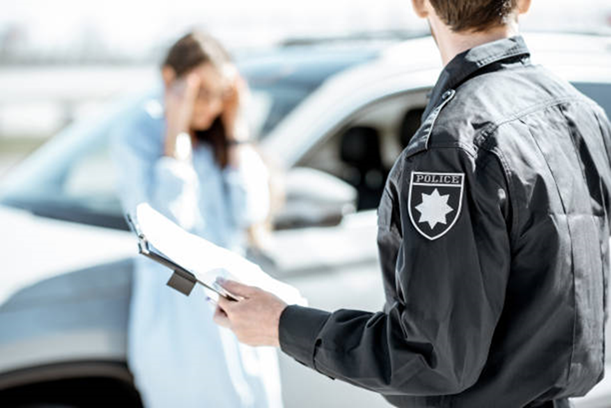
After a car accident, a police report is an official record of what happened—who was involved, where it occurred, and the damage or injuries involved. It can protect you from false claims and help with insurance later. In short, a police report is your proof.
Sometimes, the law requires you to make a police report after a car accident, and other times, it’s just a smart move. Rules vary by state, but most places require a report if there are injuries, major damage, or if the other driver refuses to share their information.
In this article, we’ll break down when you must file a police report, why it matters for insurance claims, and how to do it correctly. You’ll also learn what to do at the scene and what mistakes to avoid. The goal? To help you stay calm, confident, and protected, no matter how stressful the accident feels.
Laws on Reporting to the Police
Most states require you to file a police report if people are hurt, someone dies, or property damage reaches a certain dollar amount. The amount varies. In California, if anyone is injured or killed, you must report it to the police within 24 hours. The law states, “The driver of a vehicle involved in an accident resulting in injury to or death of any person shall make a written report… to the Department of the California Highway Patrol or to the police department of the city where the accident occurred.” (California Vehicle Code §20008).
Your state may phrase it differently, but the idea remains the same: if someone is hurt, the police become involved.
Some states set dollar limits. In Texas, if property damage appears more than $1,000 or if someone is injured, you must report it. Florida requires a report for crashes involving injury, death, hit-and-run, DUI, or towing. These laws help protect everyone by creating a neutral record.
Situations Where You Should Report
You should contact the police right away if:
- A driver is aggressive, intoxicated, or refuses to share information.
- The damage is big enough that a tow truck will be needed.
- You suspect insurance fraud, such as someone “discovering” injuries later.
A police report adds a layer of protection. Insurance companies give more weight to an official report than to two drivers arguing about what happened.
How to File a Police Report
There are two main ways: at the scene or later.
At the scene
Call 911 if anyone is hurt or the road is blocked. If the crash is minor and no one is in danger, call the non-emergency line. When the officer arrives, stick to the facts. Don’t guess. Don’t blame yourself or the other driver.
Keep your report short and objective:
- Start with direction: “I was heading north.”
- Describe actions: “The other car turned left into my lane.”
- Avoid emotional language.
After you leave the scene
If the police do not respond, you can file a report at the local station or, in many states, online. Search “file a crash report + your state.” You may have a limited time window. In Wisconsin, for example, you must report any crash with injury, property damage of $1,000 or more, or government property damage of $200 or more (Wis. Stat. §346.70).
Common Mistakes to Avoid
- Leaving the scene too soon.
- Apologizing or admitting fault.
- Letting the other driver “talk you out of it.”
- Not getting witness info.
If the other driver begs you not to call the police, that’s usually a sign you should.
Key Takeaways
- File a police report when there are injuries, major damage, or a driver refuses to cooperate.
- Each state sets its own rules, but injury always triggers reporting.
- The police report protects you from changing stories and insurance
- Gather photos, info, and witness contacts before filing.
- When in doubt, report the crash. It’s your best proof.

